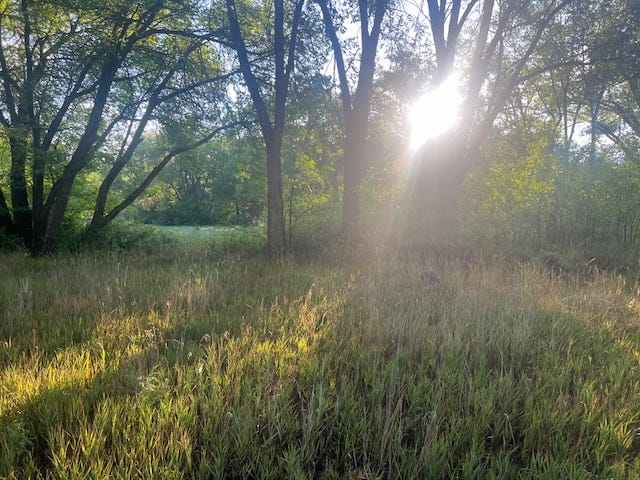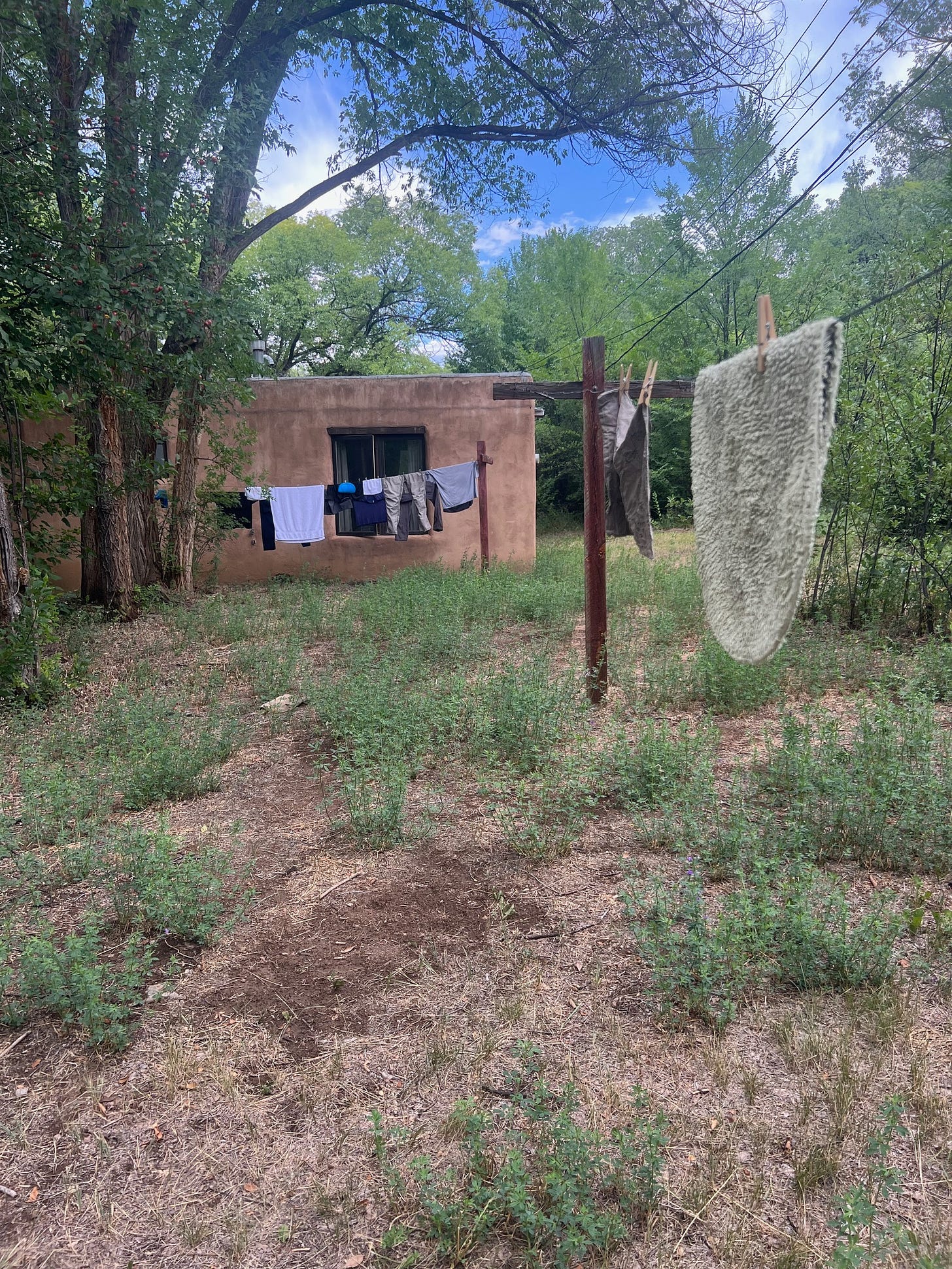Dacher Keltner's book Awe: The New Science of Everyday Wonder and How It Can Transform Your Life
1.
I recently asked someone young, “When do you feel awe?” I was expecting he would say when he is looking at rainbows at the beach—he lives in Hawaii, after all. And loves rainbows. At first he said, “I am not as emotional as you are.” But then after a pause, “But I definitely feel it when I look at Kate” (his girlfriend) —And “I sometimes get goosebumps listening to music.”
Goosebumps and tears, those are certainly gateways to AWE.
As is Beauty.
In my lifetime, I told him, I have more than once felt overwhelmed by emotion looking at the night sky, especially when there are a million stars out— like at the top of Mauna Kea. I also have felt it looking at birds. Like the shimmer of hummingbirds— I still can’t believe I never realized they were missing from my life for two decades. Only recently learning that they are only found in the Americas, which drove home how much our capability of feeling awe is connected to simple noticing. —Don’t you feel sorry for “busy” people?
I have on several occasions been struck down in awe in front of a painting— In front of a Piero della Francesca in San Sepolchro I have felt goosebumps on my face and scalp, and then there have been tears and chills listening to arias like this and this.
I have also felt deep awe in Chanoyu. Cultivating the senses and refining one’s ability to appreciate beauty in order to understand mystery and meaning is one of the aims of the tea ceremony. The term yugen 幽玄 is said to defy easy translation into english, but I do think it points to awe, when a person feels their self-ness disappearing into the world— in a moment that triggers an emotional response too deep and powerful for words.
A few days ago after visiting the famous ashram and Hanuman Temple here in Taos, I watched some Youtube videos about the temple and about the guru, Neem Karoli Baba, and in one of the videos, Julia Roberts talked about how intensely drawn to the guru she became after just seeing a photograph of him. And Ram Das (Or Krishna Das, I can’t recall) told of meeting him in India and —like me with the oil painting— felt goosebumps on his face, hot tears in his eyes.
Wonderful, awesome, awful, mystery and beauty… to become speechless in something that makes your self grow small as you are swallowed into the world. It does feel primal, as if by turning off all the noise (and taking a break from screen captivity), there is some magic something out there…. and awe can connect us to that.
2.
Berkeley Professor of Psychology Dacher Kaltner, in his book Awe, defines awe as “the feeling of being in the presence of something vast that transcends your current understanding of the world”. According to him feelings of awe help us bypass our mind’s default mode network. Building on the thinking of Michael Pollan, he says that as we grow older, our minds more and more fall into mental ruts, as the ego takes over completely. This ego is a kind of short-hand for the “default mode network” in the brain. This is something that is not developed fully in children or other animals, but in humans, it often completely takes over as we grow into adulthood. This is the “boss” of your brain and what is very connected to our sense of self (and what we sometimes refer to as our ego).
LSD, in inhibiting the default mode network, allows for other parts of the brain to become more active and sometimes enables the sense of a world infused with meaning; and the frequent experience of synaesthesia. This means not much gets done in terms efficiency and producing, consuming…. But the drug, in generating a "high entropy” state can allow for some tremendous relief and insight as well.
Spiritual practices and mediation, as well as looking at art or listening to music—or being out in nature can also engage this part of our minds, according to Kaltner.
He shares this quote by Iris Murdoch that I like a lot:
Beauty is the convenient and traditional name of something which art and nature share, and which gives a fairly clear sense to the idea of quality of experience and change of consciousness. I am looking out of my window in an anxious and resentful state of mind, oblivious of my surroundings, brooding perhaps on some damage done to my prestige. Then suddenly I observe a hovering kestrel. In a moment everything is altered. The brooding self with its hurt vanity has disappeared. There is nothing now but kestrel. And when I return to thinking of the other matter it seems less important. And of course this is something which we may also do deliberately: give attention to nature in order to clear our minds of selfish care.
In her Marginalia, Maria Popova responds to Murdoch by pointing out that, Oliver Sacks would come to echo the sentiment decades later in his observation that meeting nature on its own terms and timescales broadens our perspective by effecting “a detachment from the timescale, the urgencies, of daily life.” But this unselfing, Murdoch cautions, cannot arise from a straining of the will, for the will is a clenching of the very self which true beauty deconditions; rather, it comes as a gladsome relaxing of the spirit, of our essential nature, into the shared pulse of existence.
3.
Sometimes, the time-altering quality of awe can happen even in the most every day way. As I am getting ready to pack up my casita and end my ten-week residency here in Taos, I was out getting my laundry on the line and saw that G. had his laundry hanging too. Having lived in Spain, he also loves the feeling of laundry in sunshine.., and seeing the peaceful way that it looks. I was brought up in one of those white-washed planned California communities where you are not allowed to hang a laundry line, and it makes life feel relentlessly over-managed and in a small way heartless. In California, I sometimes feel that life is approached as a big problem to be solved. An imposition of ego to control resources, instead of a quieter listening and attuning oneself to world.
Standing out there looking at his laundry swaying in the wind, broad-tailed hummingbirds were whirring past me… they make a metallic sound (with their tails?) like crickets. I love them so much. For whatever reason, I felt time stop, and I was transported back to happy times in Japan and I did have that sense of being in a river of time.
The day before, I saw G. out my window leaping over a bush from the wildflower strewn field in front of our casitas, he had been out trying to capture a video of the coyote pups. He is in awe of them— as I am in awe watching him in awe of them. They howl at night here and it is so arresting. The pack lives in the field and there are two pups, If you get too close, mom pops out of the bushes and hops like a bunny over the tall grass to kind of escort the human out of range of her precious pups.
Last night we had a plan to try and capture that howling in a recording. So he set up his sound equipment and I played a recording he had already made of their howling. Nothing.
But it works so well with birds. I told him how when you do playback with birds, and you really shouldn’t, a bird will fly right down to a nearby branch to investigate you—looking for who was making the bird noises. But no luck with the coyotes.
G. is a Fulbright-winning composer and guitarist. When I was watching those Youtube videos about the Indian Guru the other night, I suddenly heard sitar music coming from his place—and the smell of curry!! I thought I was imagining things but texted him—and sure enough he was cooking with cumin and listening to Anoushka Shankar. When I told this to L, a talented writer here and also a lover of the temple and of Japan, she commented on the “strange experience of almost-synaesthesia!” Which reminded me of what Michael Pollan wrote.
I think how G. feels with his coyotes is how L feels for Japanese classical literature is maybe how I feel standing in front of Piero’s Resurrection—a breathless feeling of awe, like seeing a total solar eclipse, the wheels of the world seems to just stop, upending my limited of understanding of being.
Keltner, in his book, says he has been on a personal mission to reveal the secrets of the good life. “Twenty years into teaching happiness,” he writes, “I have an answer: FIND AWE.”
And he makes a great case for how it lowers the body’s inflammation responses too!
“But as in landlessness alone resides the highest truth, shoreless, indefinite as God - so better is it to perish in that howling infinite, than be ingloriously dashed upon the lee, even if that were safety! For worm-like, then, oh! who would craven crawl to land!”― Herman Melville, Moby Dick
Notes:
I think reading fiction can also generate a kind of unselfing and feelings of time stopping and ego diminishing ( of AWE). I am reading some of the Booker longlisted novels this summer and somewhat enjoyed Enlightenment by Sarah Perry, which is really about wonder, enchantment and awe. Astronomy is the trigger of awe and driver of the novel. Married to a Caltech astrophysicist, I loved and really appreciated the beautiful writing about astronomy and the night sky, which resonated a lot with me.
I loved my residency at the Helene Wurlitzer Foundation in Taos. I had my exit interview and was packing to head out when yet another story rejection arrived in my inbox—but this one was special. A personal note from Joyce Carol Oates. A special end to what was a truly fantastic summer in Taos.







Yes! I am also in awe with chado and found it meditative. But the most transforming insight I came to realize this year is the practice of bringing a sense of awe and spirituality to our everyday life - doing the cooking, child caring, housework or responsibilities that we cannot shrink away from. These tasks are lonely, heavy, unglamorous, sadly not highly regarded by our society but the power lies in bringing lightness to them.
A personal note from Joyce Carol Oates! So wonderful, Leanne! This is a marvelous piece. The discussion of AWE reminds me of William Blake's invocation of "radical innocence". And laundry on the line: the people version of "birds on a wire"!